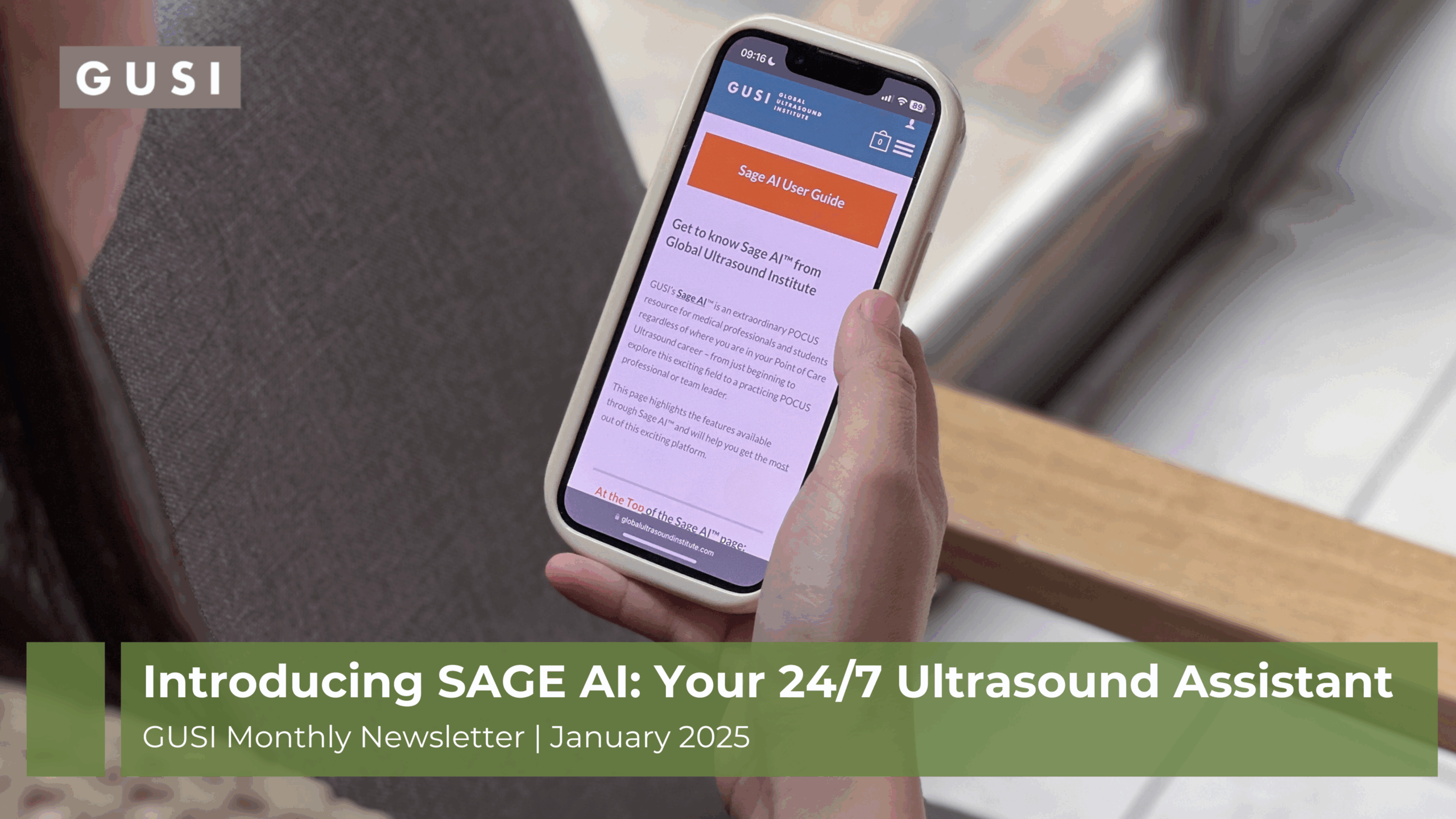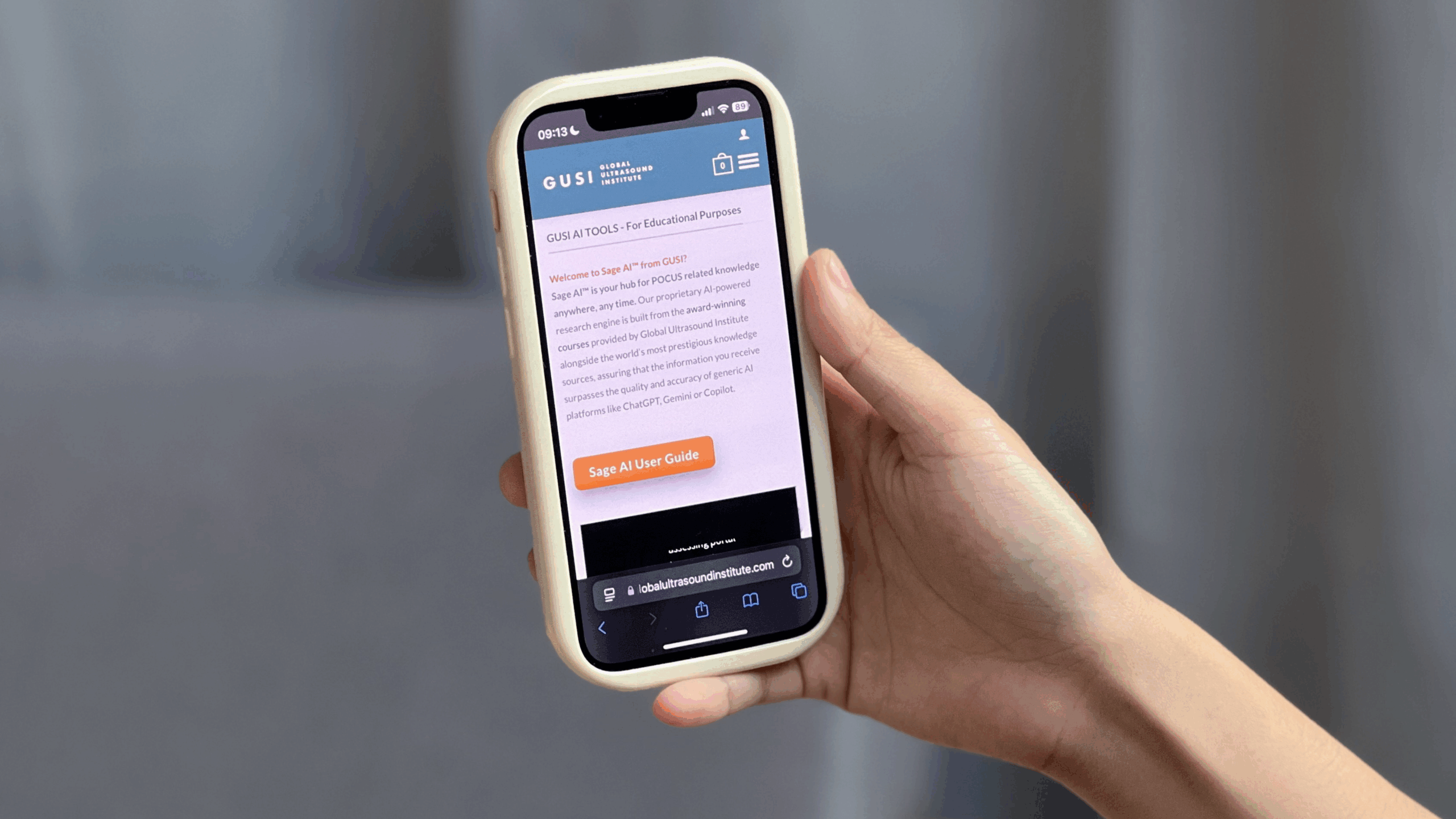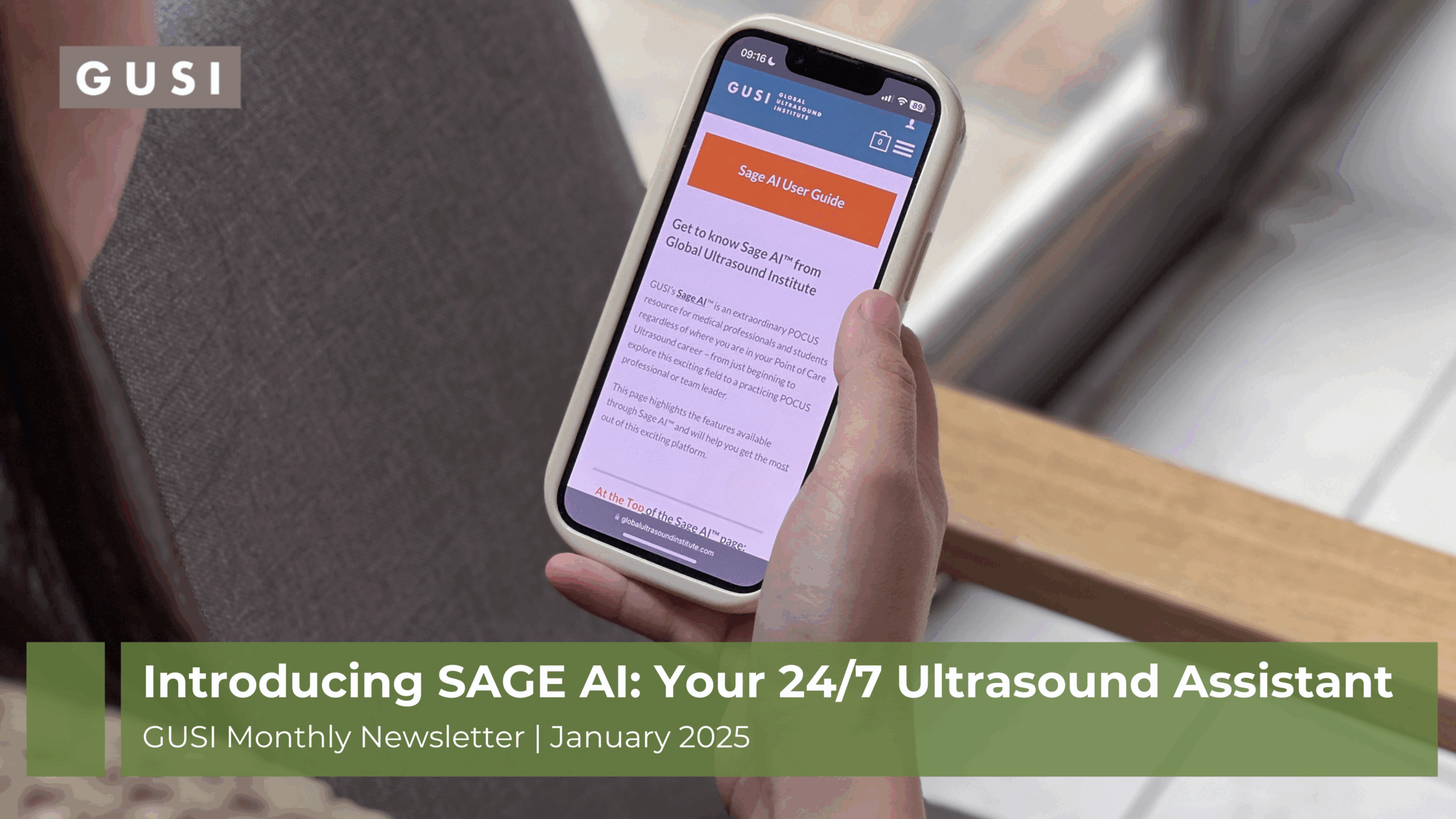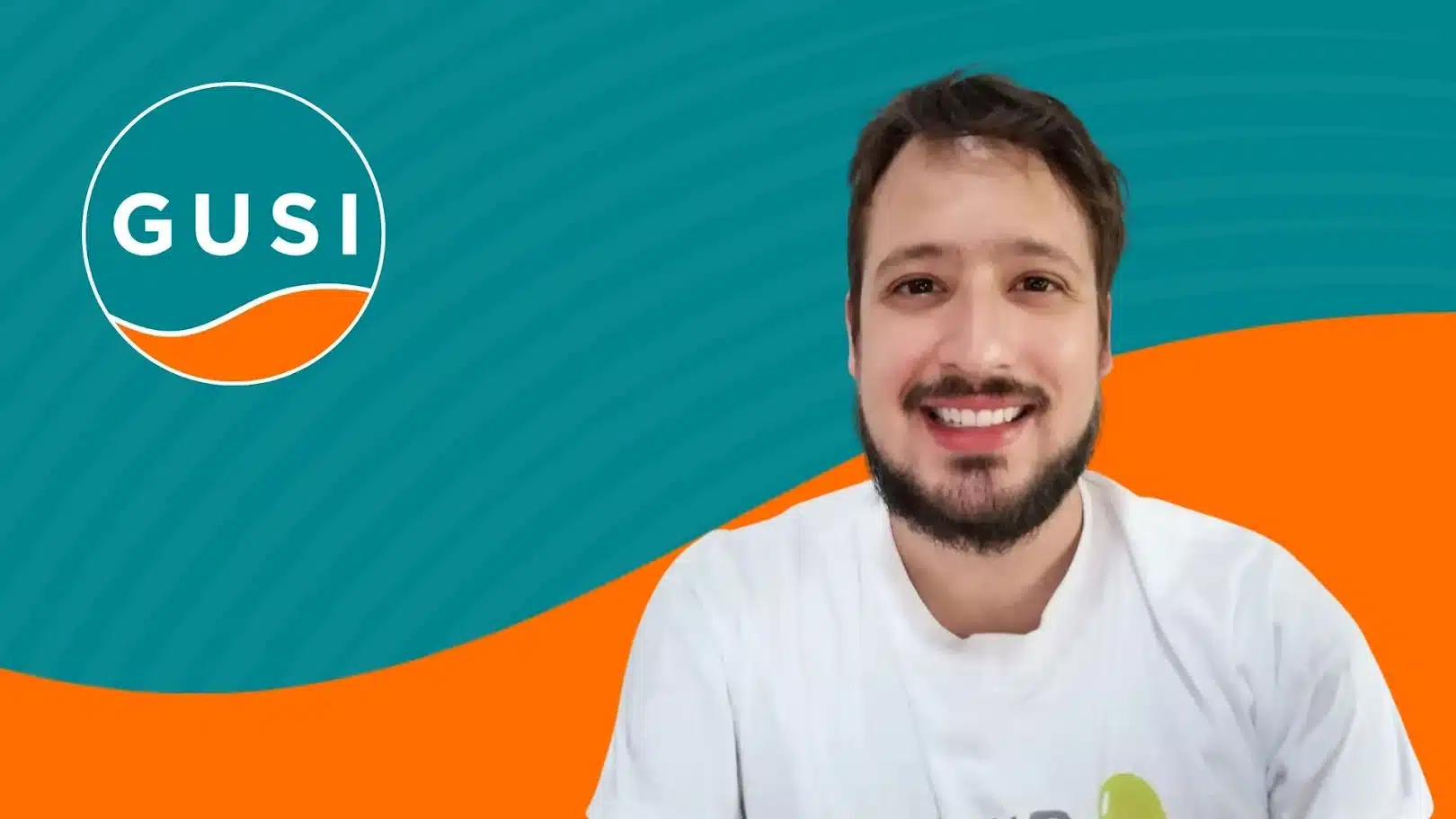
Advancements in medical technology continue to transform patient care, and SAGE AI, powered by the Global Ultrasound Institute, is at the forefront of this evolution. Designed to serve healthcare professionals at every level—from beginners to seasoned experts—SAGE AI provides instant, evidence-based answers to ultrasound-related medical inquiries.
By leveraging cutting-edge artificial intelligence, this innovative tool empowers providers to make informed decisions, improve patient outcomes, and stay ahead in an ever-evolving healthcare landscape. Accessible anytime, anywhere, SAGE AI is revolutionizing ultrasound education and practice, ensuring that medical professionals have the support they need—when they need it most.

This month’s newsletter focuses on Sage AI as a solution to enhance POCUS learning and clinical application through AI-driven, real-time educational support, with Dr. Scott Grogan, DO, MBA, RMSK, FAAFP, a board-certified Family Medicine physician with specialized training in ultrasound and medical education.
“Training, or lack of training, is often cited as the major barrier to the implementation of point-of-care ultrasound (POCUS) in clinical practice. Both users and leaders often overlook the need for in-the-moment supervision and guidance. Practitioners who wish to use the technology are not only limited by access to readily available equipment but also by the uncertainty of how to perform, optimize, and interpret POCUS examinations. Immediately available supervision from trained POCUS clinicians is often not available to guide those seeking to perform such exams. Clinical references are available but require time and effort to navigate in the hopes of finding answers to the questions that one has prior to, during, and after a POCUS exam. Sage AI, Global Ultrasound Institute’s (GUSI) POCUS educational tool, is now available to help provide rapid access to guidance and images to learners and clinical sonographers.
Sage AI is built on the foundation of GUSI’s educational library and offers quick and efficient answers to general and specific questions without having to navigate a book or resource library. As an example, when I asked Sage AI to “Help me image the biceps tendon” the ”What is the best way to view the subscapularis tendon?” Sage AI quickly delivers a concise, how-to instruction specific to the patient positioning, maneuvers, and tricks to optimize the view. It also offers links to the GUSI source content, instructional videos, images, and related journal articles. Similarly, Sage AI can help learners correct mistakes. When asked how to correct an off axis four chamber cardiac view, Sage AI reveals compact troubleshooting tips to optimize an apical window.
Regardless of the area of the body, Sage AI opens new opportunities for a modern style of remote mentorship. It can provide confidence to new learners intimidated by unfamiliar POCUS exams or findings. There is comfort in a mentor by your side to reduce the time and cognitive burden of learning and mastering a new skill. Sage AI is yet another mentorship tool in the GUSI educational support armamentarium reducing barriers to meaningful POCUS use and improved patient outcomes.
As technology continues to evolve, so too does its potential to enhance the clinical learning experience. Sage AI holds great promise in providing on-demand, real-time support for healthcare providers. While the tool is still being refined, particularly in terms of user accessibility and functionality, its future is highly promising. I am excited about the upcoming integration of Sage AI into mobile applications. Once fully implemented, it will undoubtedly become an indispensable resource for developing clinicians, fundamentally transforming ultrasound education and enhancing clinical decision-making at the point of care.”

Scott Grogan, DO, MBA, RMSK, FAAFP
Ohio University Heritage College of Osteopathic Medicine
Family Medicine Residency graduate from Madigan Army Medical Center, Tacoma, WA



